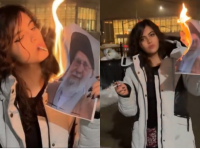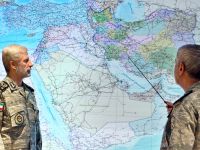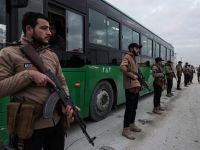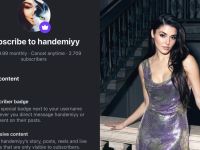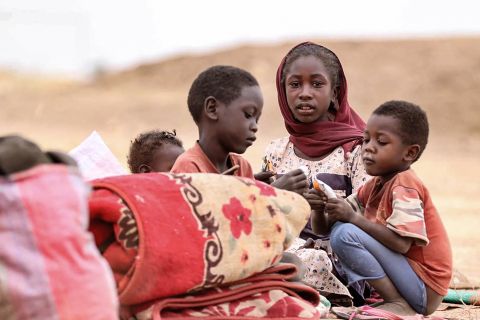Muslim preacher Amr Khaled shares plans for Egypt's future in AUC's Cairo Review for Global Affairs
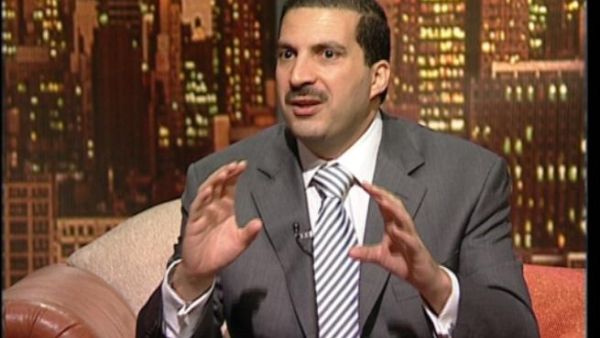
Populist Muslim preacher Amr Khaled says in an interview released today that he is considering the launch of a new political party–and does not rule out running for president–after being forced to stop all his activities in the country under the former regime of President Hosni Mubarak.
In an exclusive interview with the Cairo Review of Global Affairs, Khaled said that economic development, international partnerships and religious coexistence are keys to Egypt’s future after the youth-led January 25 revolution forced Mubarak from office. “We need to work,” Khaled said. “We need to move. We need to find solutions for problems. And the first challenge is to create jobs. So I believe we need partners.”
Khaled said that since the revolution he has returned to Egypt from Britain to pick up his role of empowering civil society through community-based organizations such as Life Makers, a group he founded. In the interview, conducted on February 23 and March 22 in Cairo, Khaled also said he was considering launching a new political party. When asked if he would consider running for president, he said: “All the options are now open to us, it's a matter of choosing where we can be of most benefit. One way might be through the creation of a political party, but not a religious party - a party that is based on social development through politics. There's also the potential of taking other political steps that are bigger than creating a political party.”
Speaking of the former regime, Khaled said: “They stopped all my activities. They feared that civil society would be active or achieve something, the basics of democracy. They understood that. They knew I didn’t talk about political issues. But what I was doing was the root of democracy and politics. They tried to ban anything like that.”
Khaled called on Western countries to invest in Egypt and help enable the country’s youth to realize the dreams that inspired the revolution: “We need partners to create these huge numbers of jobs, after thirty years with no movement and the society the way it is now. Come to Egypt. Give these youth opportunities. Open markets. Give youth the opportunity to work. If no one extends their hands to help the youth in freedom and economic issues, these expectations they have will transfer to the opposite. It’ll be depression. And I’m afraid if people don’t reach out to the youth, there will be problems. They will be ready to go to the extremes. So for all of us, we need to talk about coexistence through projects. Not words. Projects.”
Khaled said that while he would continue using faith to motivate Egyptians, he advocates a civil country and government in the future. “Religion is very important for the people in this area of the world,” he said. “But faith for what? Faith for development would be helpful for the future. I believe we are talking about faith, and faith for all, Muslims and Christians. Faith can encourage and motivate the people to build a country. This is what I think will be the future and role of faith. The model I choose to put is faith for the sake of the country. I think my model is needed right now. My message to Arab youth, you need others. You need coexistence. Extend your hands.”
Amr Khaled’s interview appears in the Spring 2011 issue of the Cairo Review of Global Affairs, a quarterly journal being launched in April by AUC’s School of Global Affairs and Public Policy (GAPP).
Announcing the establishment of the Cairo Review in January, GAPP Dean Nabil Fahmy announced the formation of a 15-member editorial board and said that Scott MacLeod, a former Time Magazine correspondent and professor at AUC, will be the publication’s managing editor.
For further information, go to www.thecairoreview.com and follow Cairo Review on Twitter @CairoReview.
Background Information
American University of Cairo
Founded in 1919, AUC is a leading English-language, American-accredited institution of higher education and center of intellectual, social and cultural life of the Arab world. Its community of students, parents, faculty and staff, trustees, alumni and other generous sponsors represent more than 60 countries. The University stands as a crossroads for the world’s cultures and a vibrant forum for reasoned argument, spirited debate and understanding across the diversity of languages, facilities and human experiences.


